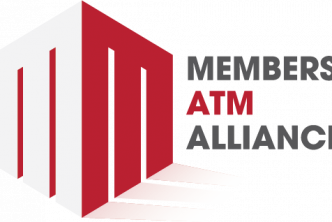By Kelly Flynn, National Sales Director, John M. Floyd & Associates
The days of floppy disks, dial-up modems and VHS tapes have come and gone, and we’ve moved on to ever-more advanced technology. Yet many community banks and credit unions still cling to their outdated core processing software. What gives?
Due to a number of factors, many financial institutions may be using core software purchased 20 to 30 years ago. To keep up with changing technology and ways of doing business, a Band-Aid solution has been to layer “ancillary” products on top of it, like online and mobile banking software. But this creates a muddled IT situation that makes it difficult to manage, launch new products and keep up with regulations.
Is that really the best way to go about business for your institution or your account holders?
It’s time to tear off the Band-Aid
According to industry reports, there are several reasons cited for NOT changing core processors. Hesitance to impinge on staff time, fear of account holders feeling the impact during the switch and price ranked at the top of the list.
To sum it up, it has to do with not having enough time to evaluate all of the options and do a thorough comparison.
This mirrors what I’ve seen from clients through the years, as well. Pursuing a new core processor is a huge undertaking. As a result, many banks and credit unions will delay beginning the process as long as possible to avoid dealing with the aforementioned side effects. But if your system is outdated, you’re only making things worse by delaying the inevitable.
It’s time to get over the fear, put a plan in place and rip off that Band-Aid so you can start reaping the benefits of an updated core processor.
All hands on deck — and then some
As I mentioned, a core processor conversion is a long process. It’s best to start two years before your current core processor contract expires. During this time, you’ll likely take on few if any other large initiatives and you may need more people power along the way.
To provide the best service to your account holders and not overload your current staff, don’t be afraid to hire temporary support during this timeframe. It’s a common practice and can even lead you to individuals that have the potential to join your organization full-time, down the road. A third-party recruiter that specializes in the financial industry (like JMFA Recruitment Services) can help you find the perfect fit for temporary positions.
And since you can’t magically create more time in the day, you may want to consider hiring an expert contract negotiator that can take the lead for you on the core conversion process.
What a third-party negotiator can do for you
Professional contract negotiators streamline the process and find the best value for you. Extensive industry experience and knowledge give your institution the upper hand when evaluating contracts and negotiating the best terms, because professionals know what to ask for and how much other institutions pay for similar services.
In a lengthy process like core conversions, a professional contract review provides even more benefits along the way, including:
- After a thorough review of your current situation — including any problems staff may be experiencing with the current system, plus any wants, needs and new application requirements — your consultant can work with you to find the best solution for your organization.
- Acquiring competitive bids for services can be a time-consuming process. A contract negotiator will send out requests for proposals (RFPs) to trusted vendors, on your behalf.
- A contract expert can provide an apples-to-apples comparison of the RFPs and help your team narrow down your options, providing clarification, guidance and advice.
- To save time, the consultant will set up all meetings between your staff, the negotiations team and vendors — including demos and presentations — so you don’t have to.
- A professional negotiator will review all vendor proposals, using a proprietary database, to ensure you are receiving the very best rates.
- Final negotiations. When you have chosen a vendor, the contract experts will complete the “best and final offer” negotiations, contract order and contract review. After you sign the contract, they will transition you to the vendor’s implementation team.
As you can see, having help along the way can prevent your staff from getting bogged down by the administrative details of the search process. Plus, when it comes time to negotiate, you will get the best deal and most favorable terms.





